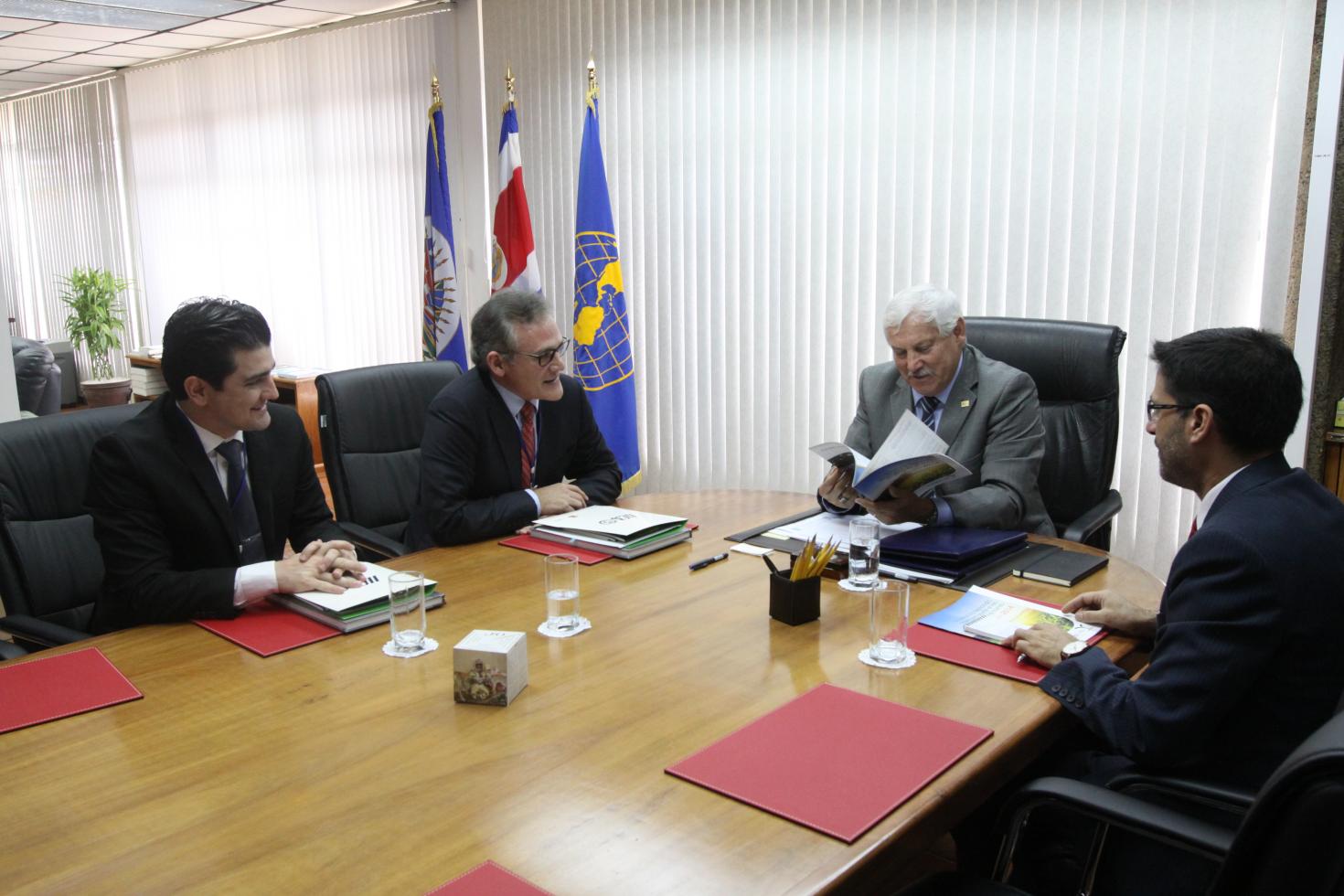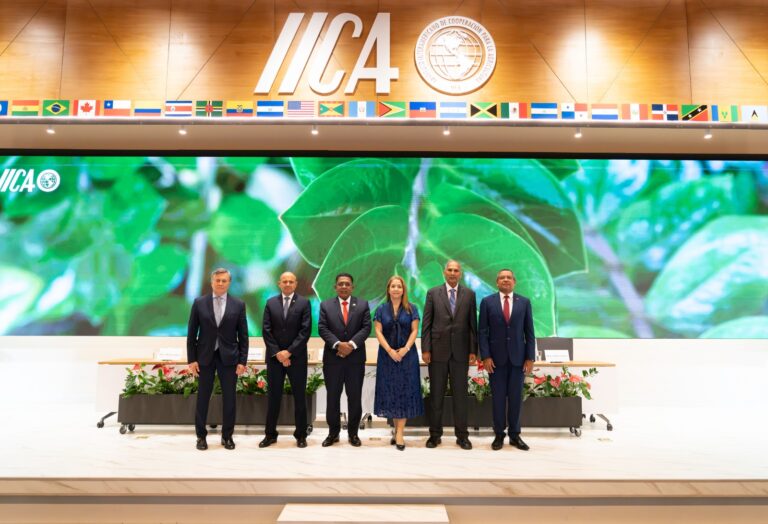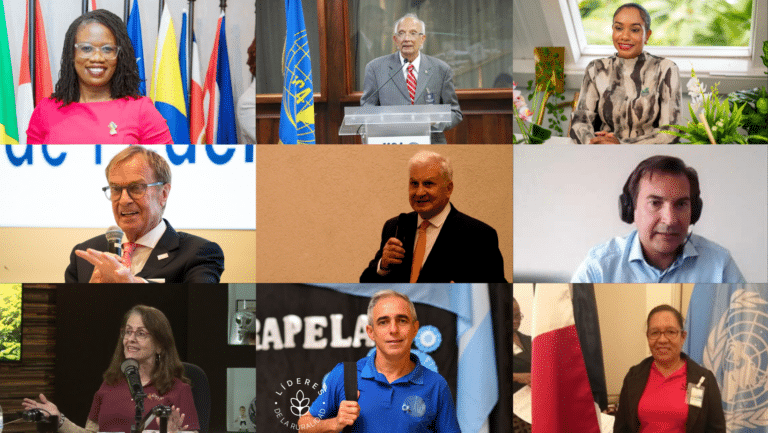An agreement between IICA and CropLife will foster the development of training programs and the dissemination of scientifically-founded knowledge, among other activities.

San José, 14 December 2015 (IICA). The Inter-American Institute for Cooperation on Agriculture (IICA) and the international organization CropLife Latin America signed a technical cooperation agreement on Thursday to promote good agricultural practices and responsible use of biotechnology in Latin America and the Caribbean (LAC).
The agreement was signed in Costa Rica by the Director General of IICA, Víctor M. Villalobos, and the President of CropLife, José R. Perdomo.
Through joint actions, the entities will seek to foster productivity and sustainability of the region’s agricultural production systems, as well as facilitate the exchange of scientifically validated information on topics such as biotechnology and biosafety.
The agreement also calls for the execution of training activities for producers and their organizations, union entities, the academic sector, government entities and other stakeholders related to the sector, such as communicators and journalists.
“Human resource development in the region is a key topic, and we must devise ways to access knowledge and create educational programs in order to provide technicians and government authorities in the countries with a scientific foundation that would allow them to make strategic, knowledge-based decisions,” said Villalobos.
According to Perdomo, Latin America has great advantage in terms of agricultural production, which must be taken advantage of. Synchronization and joint work among institutions is therefore critical.
“We want to reach rural producers in a transparent way, putting knowledge at their disposal, and continuing to work for the benefit of agricultural development at the national, regional and hemispheric level, in an orderly way and based on the needs of each country,” he stated.
Within the framework of the agreement, the entities will develop international forums, project management, technical missions, knowledge management and stakeholder integration, among other activities.
More information:










